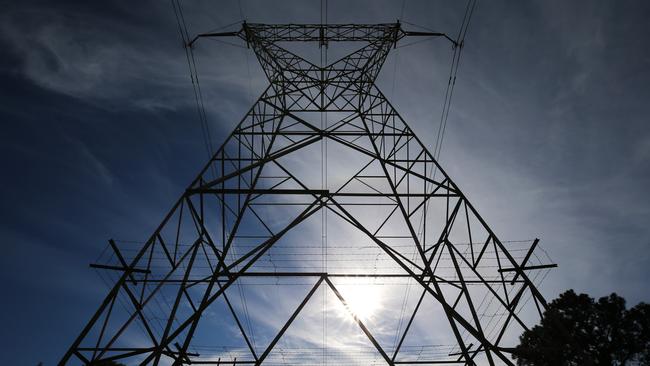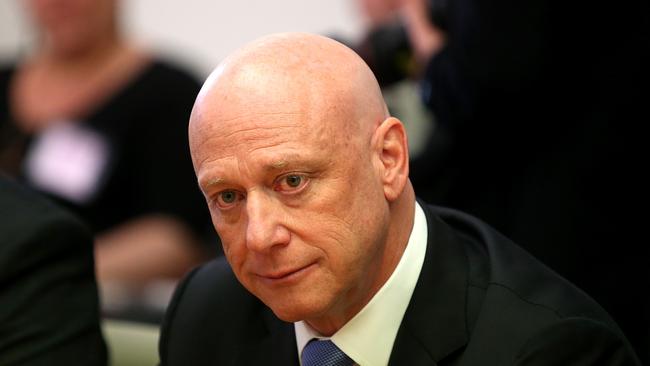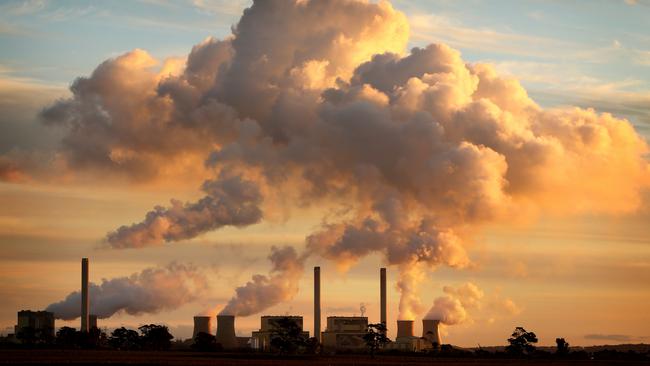David Penberthy: Power companies are playing us for bloody mugs
ENERGY companies are getting away with murder, hiding in a tangle of excuses and rhetoric, writes David Penberthy. It has this free-marketeer leaning towards draconian intervention.

Rendezview
Don't miss out on the headlines from Rendezview. Followed categories will be added to My News.
IF you asked Professor Stephen Hawking to explain the workings of the Australian electricity market he would probably fold up his keyboard in bewilderment and ask for an easier topic. Something like the origin of black holes or the probability of extraterrestrial life, or why bread always lands butter-side down when it falls off the kitchen bench.
Save for vague reassurances about the creation of “downward pressure” on prices, there is not a politician in the land who has yet put a credible and precise dollar figure on the savings they can secure on our quarterly power bills.
And none of the savings is significant anyway when set against the jaw-dropping increases in the cost of power over the past five years.
Energy policy operates in an ideologically hyper-charged environment. Politicians of every hue argue over everything from the reliability of renewables and our capacity to store power, to gas policy in the context of exploration and exports, the merits or otherwise of putting a price on carbon.
In this interminably contested space, we have created a target-rich environment for the energy giants to get away with absolute murder when it comes to jacking up prices, however they see fit.
They can use any excuse under the sun — and often all of them — to justify price hikes that are sending an increasing number of household budgets down the toilet and forcing businesses to the wall.
A bit over a year ago, I wrote a column about AGL’s decision to increase power prices by 12 per cent — more than nine times the rate of inflation and adding $230 a year to the average power bill.

That announcement coincided with a profit for AGL in the 2015-2016 financial year of $720 million, money which it uses in part to pay its American boss Andrew Vesey a handy base salary of $2.27 million, benefits of $250,000 and bonuses of $4.39 million — adding up to a package of $6.9 million. This is on top of the $1 million sweetener they slung him a few years back for the hardship of moving from the US to war-torn Australia.
Despite being weighed down by profit, AGL insisted the price rises were essential due to the “cost and availability of coal and gas supply for electricity generation as well as the changing mix of generation output’’.
One year on and here we go again. AGL, which remains as obscenely profitable as ever with its profit forecast this financial year expected to top $1 billion, announced in June that it needed to increase prices by 18 per cent, adding a further $350 a year to the average power bill.
This time, amid the continuing orgy of rhetoric over energy policy, AGL found itself in the happy position of having even more excuses at its disposal.
“Wholesale prices have increased for several reasons, including high gas prices and limited gas availability on the east coast, the closure of ageing coal-fired generators, and an uncertain policy environment,” AGL said in a statement.
It’s the wholesale price, the gas price, it’s the availability of gas, it’s coal, it’s Mabo, it’s the vibe. Up they went again. A 30 per cent increase in one 12-month period, achieved this time via the cynical, profit-driven means of simply replacing the old seasonal winter rate with a flat year-round fee.
Ka-ching. The chickens are now coming home to roost in the form of our winter energy bills, and what a scarily ugly bunch of chooks they are. My winter electricity bill last year was an already absurd $2310; the one that arrived in the post last week was $2599.54.
In fact, the full amount of the new charges in this winter bill were $2942.40, discounted down if I paid by November 2 — even though there’s a separate late fee of $12.73 for failing to do so, suggesting that the so-called “discounted” rate is a bit of a meaningless try-on by a company that’s simply obsessed with its bottom line.
Every person I know is in a similar boat, proportionally. We are a family of six, which explains the bill always being on the big side, but I know people who live alone, and couples who are empty-nesters, who’ve faced comparable increases in percentage terms.
It’s beyond a joke. As a free-market person, I would normally argue that businesses perform best and create the most opportunities when given a pretty free rein.
But when it comes to the actions of these power companies, I have growing sympathy with calls from average and low-income people for draconian intervention in the energy space.

Now, you clearly can’t separate cost from the policy settings that governments have created, especially in states where pure thinking about the need to act on climate change has gazumped pragmatism, resulting in over-reliance on renewables that don’t yet provide reliable and affordable base-load power.
But beyond that, with the multifaceted argy-bargy surrounding energy policy, the power companies can cash in amid the confusion of it all, in a perverse triumph of the interests of shareholders over the needs of customers.
AGL irks me the most because Andrew Vesey has postured as something of a Twitter darling, sucking up to the renewables crowd with his disingenuous boasting about how AGL is “getting out of coal”.
This is despite the fact that it bought three coal-fired stations in NSW in 2014, derives 90 per cent of its current power from coal and gas, and will be the last Australian power company to wean itself off coal in some three decades’ time.
The political debate around power is focused on how we make it. The real debate among normal people is a more specific and urgent one — how much we pay for it.
Well, we pay too bloody much. If the power companies keep playing us for mugs, they should brace themselves for some nasty populist policies. People have had a gutful of their gouging ways.



